M&Ms: The Best Books About Risk Taking
The top 10 books I've found on risk taking.
I've taken some risk in my life, especially in the last few years.
For one, I quit a job that would've paid out over $700k in total comp in 2021 just for showing up—and maybe a million if I'd exceeded expectations.
That's a lot of money to risk leaving behind to chase your dreams of entrepreneurship.
But don't cry for me, because my story is kind of like that one Lil Wayne verse: "Hope I don't look weak, 'cause when a wolf cry wolf. You still see that wolf's teeth." Keep in mind that I got to that total comp by taking risk in the first place.
Years ago, around the midpoint of my career, I internalized that it takes risk to get ahead. After that realization, I took a leap of faith and my first big risk. I took my first huge pay cut, huge, at least for me back then. I left a reputable job at a big, stable bank, Bank of America Meryl Lynch, for an unknown startup with 20 engineers.
But that startup grew like a rocket, and then my career grew like a rocket. That startup was acquired by Walmart, which increased my compensation to the levels that I then left behind in 2021.
So, it took the risk of leaving the bank for the startup to get the personal growth that I needed to be worth much more a few years later.
It might take some level of risk for you to get the personal growth or the lifestyle you may be seeking too.
But taking risks blindly is foolish.
Mohnish Prabai, who wrote the Dhando Investor and is a student of Charlie Mungers, recently said, "The best entrepreneurs are risk reducers, not simply risk takers."
But I'd argue that it's not just entrepreneurs; the fastest career movers are risk takers and risk reducers, too. And reducing risk is what the small bets approach to entrepreneurship is all about, too.
I decided to write this piece because I'd like to inspire you to take more risks, but I’d also like for you to be prudent about that risk. That’s why I am going to recommend a few books that changed how I think about taking risks.
You may already know some of the benefits of risk-taking, but if you'd like a reminder or some more convincing, read this next section. Or, if you are convinced, skip the next section entirely for the book recommendations.
The Benefits of Risk Taking in Life
Risk taking will get you out of your comfort zone.
Risk taking may open more opportunities for you, as it did for me.
You will definitely become more resilient and robust from risk-taking. But risk-taking may even make you more antifragile. Almost all of the learnings and growth in my life came when I was out of my comfort zone and taking some level of risk.
Risk taking is the sort of thing that brings us new innovations. We find new ways to do things personally, but it can also bring more innovation to the organizations we work for or build. All of the nice things we have as a society we owe to some degree to the risk taker.
Risk taking is a muscle you were born with; our ancestors took and managed risk frequently, or you and I wouldn't be here. But like any other muscle, risk-taking has to be trained. You also become more fearless when that risk muscle gets stronger; I know I did.
The Best Books on Risk Taking
This list is the best book on risk-taking that I've come across. They are the best either because the person who wrote it took prudent risk and the lessons can be gleaned from their life story or because the author took great pains to spell out their insights on risk taking.
Poor Charlie's Almanack: The Wit and Wisdom of Charles T. Munger
This book will enmesh you into the prudent risk-taking philosophy of Charlie Munger & Warren Buffet. You will get insight into both men and what's made them so succesful in the world of risk taking.
One example of a risk reduction strategy you will get from Charlie Munger is the “Too Hard Pile.” If Munger (and Buffet) did not feel they fully understood the risk they were about to take on, they simply put it to the side on a “too hard pile” and let someone else take that risk. I get good ideas for various small bets I could place, but so many of them require too much resource or have so much unknown to pull off, that now I simply say put it on the “too hard pile” and wait for one suitable for my resources and understanding today.
I think Naval, who wrote How to Get Rich Without Getting Lucky, was wrong when he said "Poor Charlie's Almanac" is like an MBA. This book is a full-on STEM + ECONOMICS + BUSINESS + MARKETING + PSYCHOLOGY++ degree. It is like the 101 + 102 (entry-level college classes) to a multidisciplinary life.
But the book itself is just the entry classes to that degree. You need to follow the rabbit hole and read the recommendations it gives you to graduate. But even just the entry classes will help you immesenly.
Also, it's good to point out that Munger was a ferocious reader. He spent most of his 99-year-old life reading. So you know the books he recommends you read aren't just going to be good. They are going to be the best ones from a lifetime of reading.
To say Charlie Munger changed my entire perspective on risk-taking since I stumbled on his ideas back in 2019 would be an understatement.
Antifragile by Nicholas Nassim Taleb
It is as if Nassmim Nicholas Taleb is somehow a direct descendant of Plato or Aristotle.
Or maybe it is even better to think of him as one of those ancient philosophers reincarnate.
But Taleb has decided to grace us with frameworks for thinking about risk in the modern world that are impossible to find anywhere else. In his books, Taleb leaves no stone unturned in terms of risk, from the risk of over-relying on employers to financial risk, to societal risk, to life and death itself.
Taleb has written multiple books, all of which are worth reading. But this book, in particular, Antifragile, presents a very valuable idea to the risk taker. By understanding and studying things that are antifragile and emulating them where possible, the risk taker, you and I, will fare much better.
Becoming more antifragile ought to be the goal of any risk taker, not just to survive a risk so another one can come and wipe us out later, but to benefit from it and face the next one even stronger.
In my own life, he has impacted my thinking about becoming diversified about building up multiple income streams. Sometimes, when one goes down, another goes up.
Taleb takes great pains to explain his insights to us. But he himself has discovered and lived many of these ideas in a prior career as a trader. That is what makes his books so special.
Gut Feelings: The Intelligence of the Unconscious by Gerd Gigerenzer
In this book, Dr. Gerd Gigerenzer proves without a doubt that trained gut instincts, or rules of thumb, are faster and better at calculating things on the fly than even a supercomputer loaded with all the data available in the world would be.
The book itself can feel dry at some points, but it's deeply interesting how important the gut instincts you are born with are. And how important the ones you choose to train up are in your lifetime.
I spent most of my managerial life thinking that data-driven decisions were the only good way to make decisions. But this book proves without a doubt that this is simply not true. No amount of data on a spreadsheet can capture what the trained gut can capture almost instantly.
From this book, you’ll learn how gut instincts work, how they can be trained, and when to lean on them. All of which are very important tools in the risk-taking journey.
An honorable mention here is that this same author wrote a book called Risk Savvy, which I also read, but honestly, Gut Feelings is so much better and more convincing that it's all you need on this topic.
Influence by Robert B. Cialdini
This book is not about risk taking at all. It is a book about psychology.
You might not think so, but most of the risks we face in this world come from people.
Understanding human psychology is part of prudent risk taking. Risk comes from people not behaving the way you expected, not going along with your plans, not wanting what you make, and so on.
This book, Influence, is a little long, and for most of us without any background in psychology, it should be digested slowly. But it is the best psychology book that I've ever read. Even if only a few of these ideas stick, or even if you only read half the book, I promise you will be better off in your risk-taking journey.
This book is so good that Charlie Munger gave a free copy to everyone he knew. Munger also donated a class A share of Berkshire Hathaway, at the time worth $50-70k, to the author. That same share, if the author held on to it, is worth $660k today.
Thinking in Bets by Annie Duke
Annie Duke, who had a successful poker career and won millions, wrote an incredible book about the thinking that's incredibly helpful when we're taking risks.
It's a good book on many levels, but I recommend it on this list because it is the perfect book to connect that so many things we do in life are about odds and probabilities.
Poker is one of those games that requires both skill and luck, much like life itself. But even though poker isn't exactly like the risk you & I might be taking on in life, most of the time, we won't even know our odds in life. This book is still great.
Because even if we don't know our odds, we can intuit that risk in life has some sort of odds at play, and there may still be things we can do to improve those odds. From that lens, the way of thinking that Annie Duke surfaces in this book is a valuable tool for your risk-taking toolbelt.
A mention here is the book "Little Bets," which has no real relationship to our Small Bets approach to entrepreneurship or to Annie Duke's book. It is about how many entities (comedians, artists, businesses, etc.) practice & intuit things in a low-stakes environment first, then take them to the big stage. The book is interesting, I read it. But, unfortunately, does not make my top 10.
Skin In The Game by Nicholas Nassim Taleb
This book is about the idea that someone taking a risk, who has something to lose, will find ways to navigate risks that might simply be impossible for an outsider looking in to do.
All of that is to say that you will view risk very differently when you are actually taking it rather than when you are theorizing about it. You will learn about your risks at a faster pace. You will move faster. Your organism is pre-programmed to do everything it can to navigate the risk it faces successfully, and the only way to tap into that programming is to have something at stake.
Skin In the Game will teach you an important tool that you may not consider until you are taking your risks. It will convince you that you are more powerful than you may realize when you have something on the line.
I wish I could put at least 4 of Taleb's books on this list. But then we would be missing some valuable other tools that are worth having in our toolbelt for risk-taking as well.
Genghis Khan and the Making of the Modern World by Jack Weatherford
Genghis Khan, born Temüjin, was dealt one of the worst starting hands in the world.
He was born dirt-poor in a place with little more than rocks for resources at the time. Among the Mongols, he wasn't born anywhere near the upper class; he was dark bone, their way of classifying one as dirt.
But yet he rose up to lead his people and build one of the biggest empires in history, all within one lifetime.
The amount of risk this man took in one lifetime, as described in this book, and the amount of risk he put his people through will leave you flabbergasted.
But when you come from nothing, and your people have nothing but rocks to eat, you too may consider riding horses over ice lakes through the winter for five days straight. You, too, may consider milking your horses to stay alive on that journey, only to get to the other side full of rich European Cities so you can fight a war against them. And totally destroy their armies and pillage resources so your people are no longer starving.
Will Durant, in his incredible short book "The Lessons of History," said humans spent close to two hundred and ninety thousand years inside the jungle. And so far, we humans have spent only about 10 thousand years outside of the jungle. The instincts from the jungle are too strong in humans. Almost every societal construct we’ve created since getting out of the jungle, from marriage to religion, has been to try and tame our instincts from our days in the jungle. Will Durant believed those jungle instincts simply don't serve us as well as they did and are counterproductive to a functioning society, and I agree.
But Genghis Khan would disagree. He leaned hard into those take by any means, kill or be killed instincts from the jungle. Genghis climbed from the very bottom to rule almost the entire world with a few simple principles that could’ve come right out of the jungle.
I know some people feel the world has changed today, that people are not as savage anymore. But I disagree. Don't forget, Genghis was riding over ice lakes and pillaging the world only a few hundred years ago. And you can see with the events going on in the world today that nothing’s really changed. It's simply not enough time for any type of change to occur to human nature.
This book is enlightening from a risk-taking perspective because of the amount of risk Genghis participated in, yet he died a fairly old man. Second, it proves that risk-taking is relative; he who has little to lose is liable to do crazy things. I don’t admire Genghis’s savagery. But you and I may be competing against people like that in the world at times, and recognizing that and managing for that is an important part of risk-taking.
Finally, this book makes you appreciate and want to defend the societal constructs we’ve created to try and keep the savage nature at bay.
It's worth noting that if I had more room, I would've included "The Lessons of History" by Will Durant on this list. It's kind of funny to even think of history books like these as helpful for risk-taking, but paraphrasing Will Durant here, who said it perfectly: history is the true philosophy of humans & all things. Unlike what people tell you they think or what they think they think, history is what they actually did. And we can learn a lot about risk-taking from that.
How to Fail at Almost Everything and Still Win Big by Scott Adams
This book by Scott Adams introduced the modern world to the important concept of talent stacking, which is not that different from what Charlie Munger preaches about becoming multi-disciplinary.
In his own life, Scott Adams figured out that he wasn't the best businessperson, cartoonist, or storyteller in the world, but he was pretty good at all those things. But combining them made him one of the best business cartoonist storytellers in the world, which is how he got his success with his Dilbert cartoons.
Talent Stacking may not seem like it, but it is a risk reduction strategy because becoming the top 90% at something is a lot easier, and far more likely, than ever being able to become the top 99%. The top 99% often require natural talent that you may not have been born with.
This is an important tool to internalize for the risk taker, you and me, to find ways to increase our odds.
An honorable mention here is "The Almanack of Naval Ravikant," which frames many of these ideas about leverage, compounding, ethics, and so on in a way that is very useful to the aspiring risk taker.
The Autobiography of Benjamin Franklin by Benjamin Franklin
The conditions that created America were something special. You had these people that left crowded cities, like London, for an untamed new world.
A new world full of freedom, danger, and possibility. But all of it they had to grab on their own, and all of it entailed risk.
Benjamin Franklin will take you to that world with his own story and, in his own words, about how a boy from poverty who didn't even go to school ended up becoming so multi-disciplinary that he became world-renowned in multiple disciplines.
How he went into business with a printing press, how he opened up a newspaper. How he published an annual almanac that ultimately made him wealthy and allowed him to chase the finer things in life.
Franklin highly influenced Charlie Munger. Munger just couldn't believe that one man could go on to accomplish so much in one lifetime. And do so in an admirable way. But then Munger went on to accomplish a staggering amount in his lifetime himself too.
In my opinion, these are the people to emulate.
Franklin's story is full of risk-taking, which starts with going off on his own at a young age because of a poor family. Later in life, facing off against Native American tribes to defend the borders of Pennsylvania. Taking personal risks to help America find allies for the Revolutionary War. And to be brave enough to sign papers that declared war on an Empire. The kind of risk that Benjamin Franklin had to face in his lifetime is unlikely to be even close to the type of risk we need to face off agsinst.
And yet he prevailed at almost all the things.
A notable book mention here that will also give you a glimpse into that world, those special conditions that made America & the risks they had to take, is "Franklin & Washington: The Founding Partnership." It's a wonderful book, and George Washinton's life was an incredibly risky one, too; if you like history, it's worth reading; you'll learn some good lessons from their stories.
How to Get Rich by Felix Denis
Felix Denis wrote two incredible books, both with a similar theme of framing risk: How to Get Rich and The Narrow Road.
The unfortunate thing about How to Get Rich is its name. This book's name sounds almost silly, but it's a really great book from someone who lived it and recounts if it was all worth it.
Many people succeed in business and go on to write Books or Poetry the way Felix did later in life.
But few are as honest in their reflections as Felix Denis in this book. He came from poverty, struggled with drug abuse, played in R&B bands, worked as a window display artist, and worked as a sign painter, among other things, before realizing the folly of his ways and stumbling into the Magazine industry. Then, he masterfully took it over. Think Maxim magazine and many others.
I learned more than a few things that are useful in periods of transition from Fleix’s story, his honesty, and his insights.
I hope some of these books are helpful to you in your journey. They’ve been immensely helpful to me.
If you’ve already read some of them and they impacted your life, I’d love to hear about it. Or, if you have some recommendations for me, I’d love to hear those, too. You can reply to this newsletter, and it will reach me.




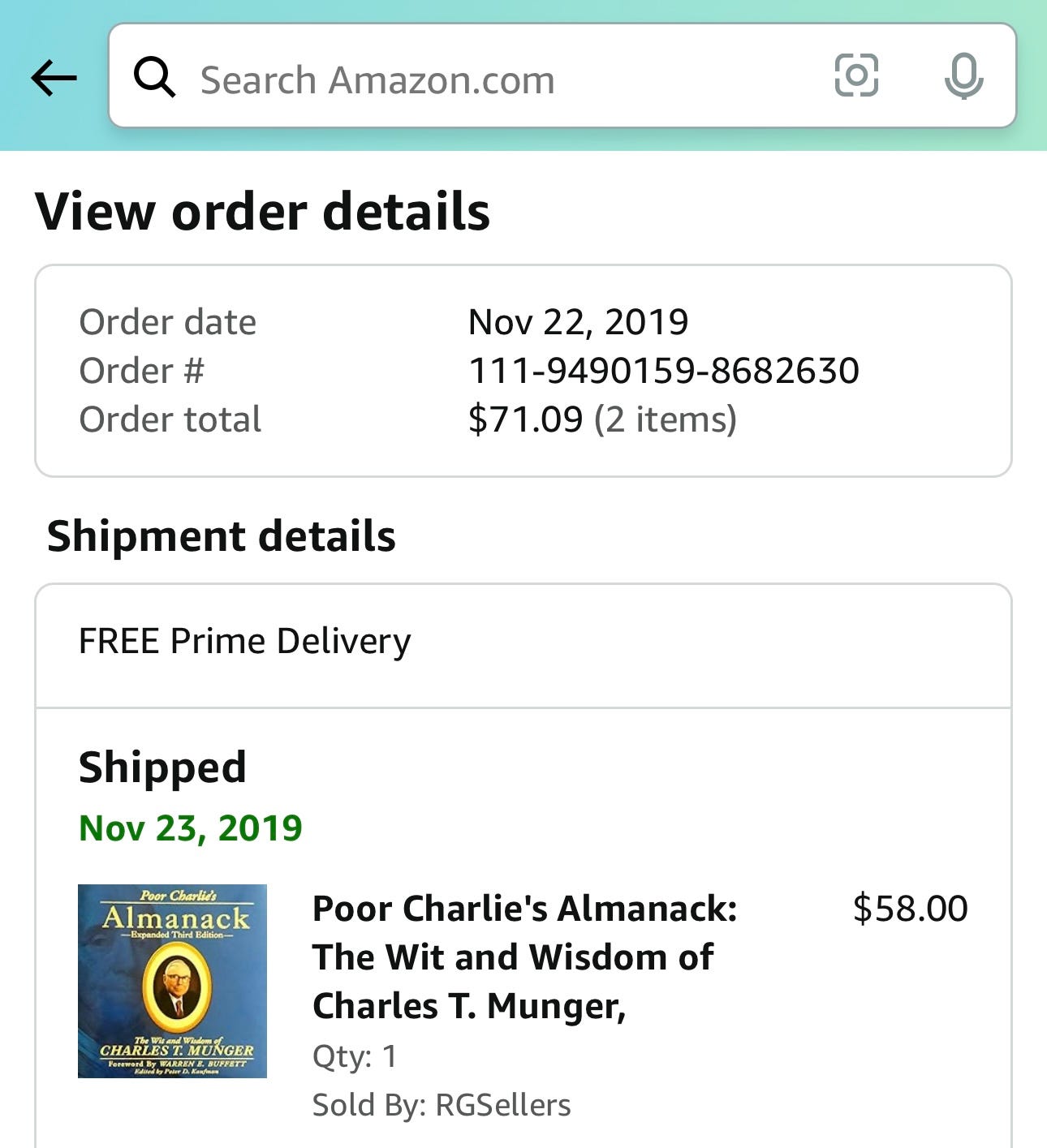


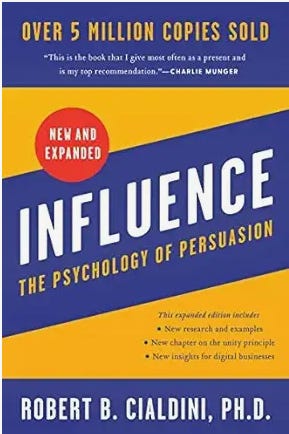


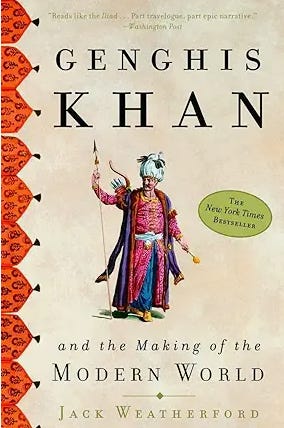
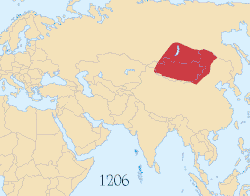


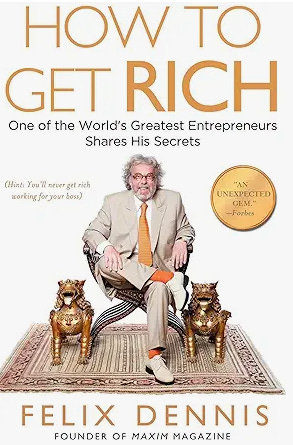
I think there’s another important layer to risk that’s not talked about often:
Risk is multi-dimensional.
We often think of risk along one plane (e.g. money, career success), but forget the many other risks we take by pursuing a certain path. Paths not taken or prioritized get pushed into the rear view mirror.
For example, I’m sure when you left your corporate gig for entrepreneurship, it was more than only the risk/reward of the money.
Maybe it was risky along one plane (money), but far less risky across others (fulfillment, autonomy, etc.).
(this is also why these decisions are hard to make exclusively via spreadsheet… to many data points)
Great post on risk taking - and the best books about taking risks. I've read some of these but I'd like to read the rest too!